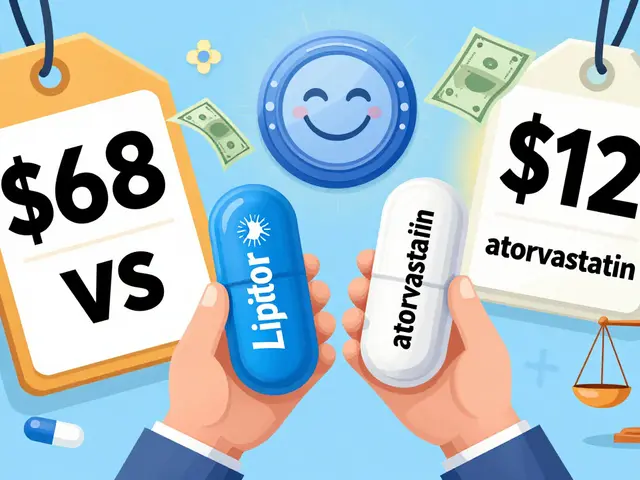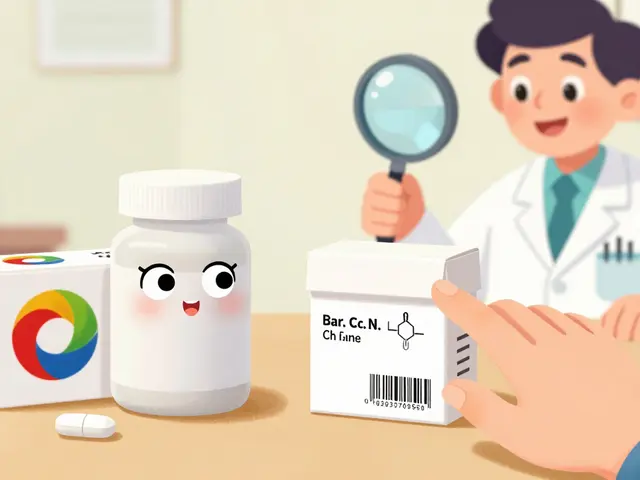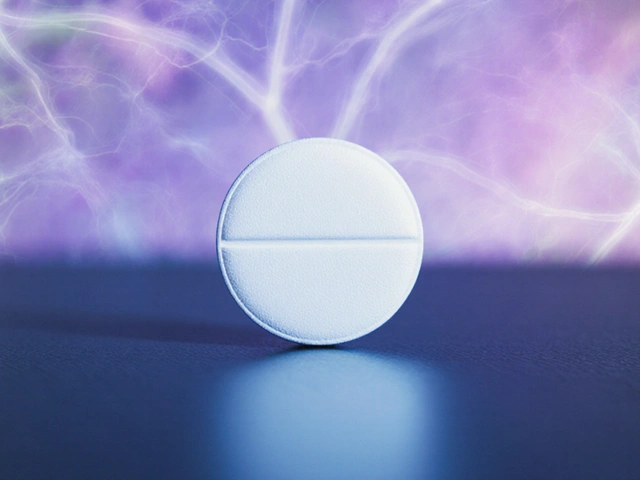Cholesterol Medication: What They Are and How They Help
If you’ve ever been told your LDL is too high, chances are a doctor mentioned a cholesterol medication. These pills aren’t magic; they lower the amount of bad fat in your blood so your heart stays healthier. In plain terms, they make it harder for plaque to build up in arteries, which reduces the risk of heart attacks and strokes.
Most people start with a statin because it’s proven to cut LDL by 20‑50 %. Statins work by blocking an enzyme your liver uses to make cholesterol. If you’re new to these drugs, expect a simple daily tablet, usually taken in the evening when your body makes most of its cholesterol.
Common Types of Cholesterol Meds
Statins – Atorvastatin, rosuvastatin and simvastatin fall here. They’re first‑line for a reason: they lower LDL fast and have solid safety data.
Ezetimibe – This one blocks cholesterol absorption from food. It’s often added to a statin when extra lowering is needed.
PCSK9 inhibitors – Injectables like alirocumab or evolocumab are pricey but powerful, dropping LDL by up to 60 % for people who can’t reach goals with pills alone.
Bile‑acid sequestrants – Colestyramine and similar agents trap bile in the gut, forcing your liver to use more cholesterol to make new bile. They’re older, work slower, and can cause digestive upset.
Fibrates & Niacin – These target triglycerides and raise “good” HDL. They’re not first‑choice for pure LDL control but help when you have mixed lipid problems.
How to Take Them Safely
Start low, go slow. Your doctor will likely begin with a modest dose and check your blood after 4–8 weeks. This lets them see how well it works and whether any side effects pop up.
Watch for muscle aches. A few sore muscles are common, but sharp pain or dark urine should trigger an immediate call to your doctor. Blood tests can rule out serious muscle injury.
Mind interactions. Grapefruit juice can boost statin levels and raise the risk of side effects, so it’s best to skip that cocktail while you’re on these meds.
Stay consistent. Skipping doses makes your cholesterol bounce back quickly, undoing weeks of progress in a day.
Pair medication with lifestyle changes. A diet rich in vegetables, lean protein and healthy fats, plus regular walks or jogging, can amplify the drug’s effect and may let you lower the dose later.
If you’re pregnant, nursing, or have liver disease, tell your doctor right away—some cholesterol meds aren’t safe in those situations.
Regular check‑ups are key. Your provider will monitor liver enzymes, kidney function and blood sugar because some drugs can nudge these numbers up.
Bottom line: cholesterol medication is a tool, not a cure. When you combine the right pill with sensible eating and movement, you give your heart the best chance to stay strong.

Zocor: Uses, Side Effects, and What to Know About This Statin Drug
Dig into what Zocor is, how it works, and why so many doctors prescribe it to lower cholesterol. Learn about the benefits, side effects, practical tips for taking it, and the stuff nobody usually mentions about statin drugs. Get the real facts on how Zocor might fit into your life—straightforward, practical, and easy to understand.





